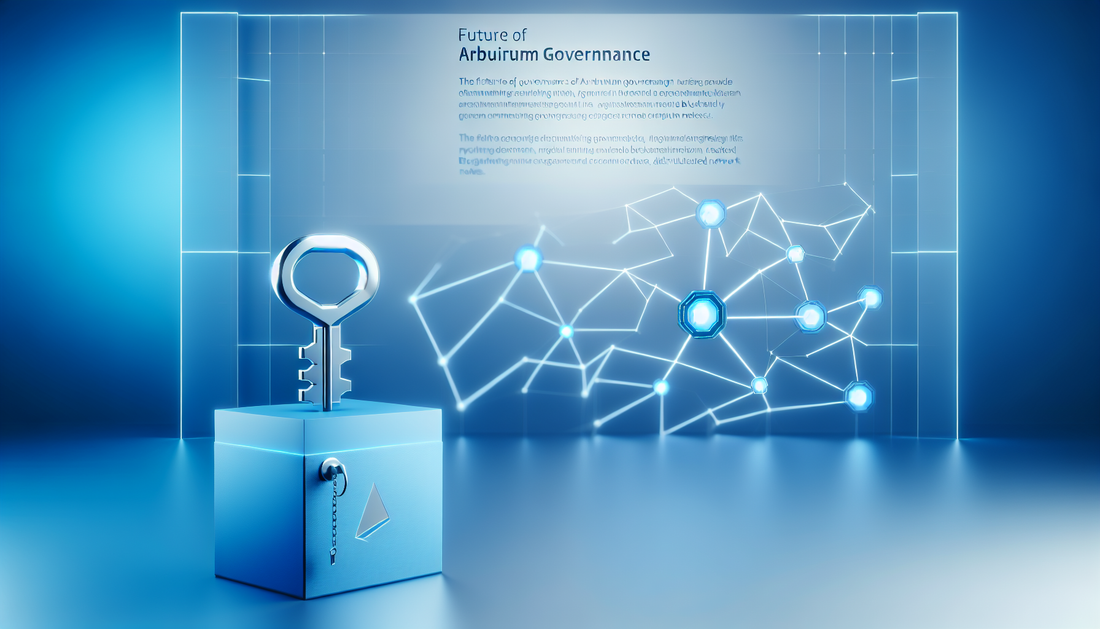
Unlocking ARB: The Future of Arbitrum Governance
Share
Understanding ARB: Arbitrum's Native Token
Arbitrum is an Ethereum layer-2 scaling solution designed to improve blockchain speed and efficiency without compromising on security. ARB is the native governance token of this project, enabling holders to have a say in the protocol's governance. Arbitrum uses Optimistic Rollup technology, which allows it to offer lower transaction costs and increased throughput. This, in turn, helps alleviate the congestion often seen on the Ethereum network.
The Role of ARB in Governance
ARB primarily functions as a governance token. It allows holders to vote on protocol upgrades and policy changes. As decentralized governance becomes increasingly important in crypto projects, ARB offers its holders the ability to have a direct influence on the future of the Arbitrum protocol. Governance features can bring both an element of power and responsibility, as decentralization means that decisions are often carried out by the collective voice of the community, not an overseeing entity.
Arbitrum and Its Optimistic Rollups
One of the core reasons for the launch of ARB is to support Arbitrum’s scaling technology, known as Optimistic Rollups. Optimistic Rollups help reduce transaction fees and unclog the Ethereum network by processing transactions off-chain and only recording proof on the main chain in the case of disputes. ARB plays a role here by decentralizing governance over these systems, making it less reliant on any single party for managing protocol changes. Essentially, ARB adds additional layers of decentralization to already decentralized technology.
Risk Factors with ARB
While ARB provides a critical governance element for the Arbitrum ecosystem, it’s worth noting that, like many governance tokens, its true value depends heavily on the decisions made by the community. Poor governance decisions or low engagement from token holders could potentially hamper the long-term success of the project. Additionally, Arbitrum still faces competition from other layer-2 and scaling solutions such as Optimism and zk-Rollups, making the market highly competitive.
Use Cases and Adoption
Beyond governance, ARB doesn’t currently have any additional utility such as staking, though that could change if the community votes to introduce such features. Its adoption is likely tied to Arbitrum’s success in attracting developers and decentralized applications (DApps). More projects on Arbitrum could increase its use cases and therefore lead to wider adoption.
